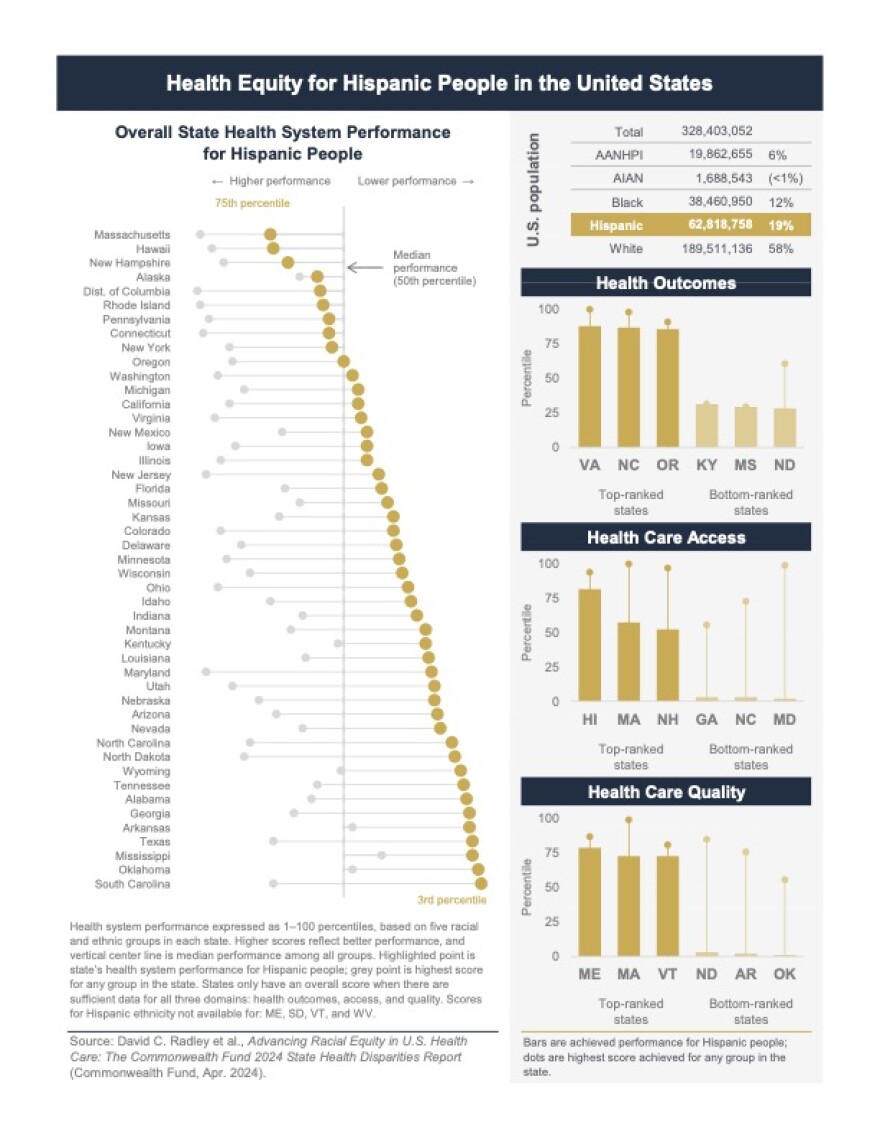The recently published research from the Commonwealth Fund, a private foundation that studies healthcare, shows Black Americans and American Indians are at the greatest risk of death from preventable conditions.
David Radley, Senior Scientist with Tracking Health System Performance at the Commonwealth Fund explained North Carolina’s data.
“So when we look at these deaths early in life from treatable conditions, we see that the rates for Black people in North Carolina are almost twice as high as they are for white people," he said.

The data that was used for the report comes mostly from federal sources, and publicly available data, including information from the CDC, Medicare, and the Census Bureau.
Data shows that compared to other states in the Southeast region, North Carolina has more severe racial and ethnic health disparities. Hispanic people experienced the lowest health system performance in the state, scoring in the 13th percentile. North Carolina also ranks as one of the three worst states for healthcare access for Hispanic populations.

However, the same data shows that although Black residents have poorer health outcomes than their white counterparts, North Carolina ranks above other states and even among the best in quality of care for Black residents.
White North Carolinians receive the highest quality of care, and have the highest health outcomes. According to Radley, a big piece of the puzzle has to do with insurance access. North Carolina’s percentage of uninsured citizens in each racial category is higher than the national percentage.
“What we find is that Black and Hispanic adults in North Carolina are more likely than white people to be uninsured. And not surprisingly, that also means that they're much more likely to report skipping needed care when they need it because of its cost," he said.
There are things that legislators can do to help, Radley said. The recent expansion of Medicaid in North Carolina was one step that expanded insurance coverage to thousands of North Carolinians. Other broad measures like the Affordable Care Act in 2014 helped reduce the number of uninsured citizens.
The reasons for these disparities are “complex”, according to Radley. Social determinants of health, social factors like stable housing and access to affordable, high-quality, healthy food, all contribute to the underlying reasons for these disparities. But they are complex — and extend beyond the healthcare system.


